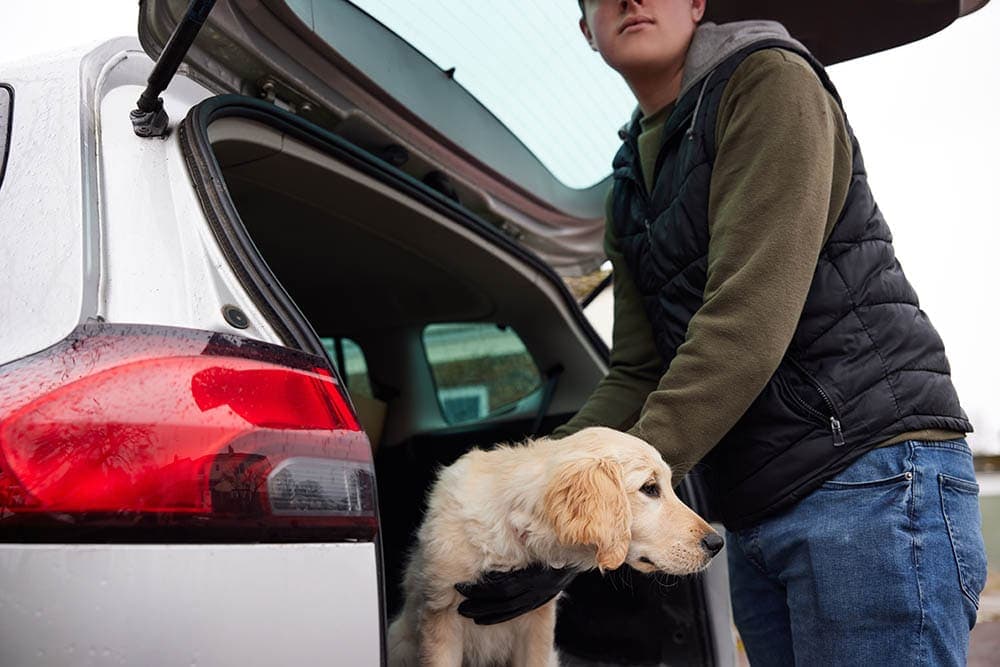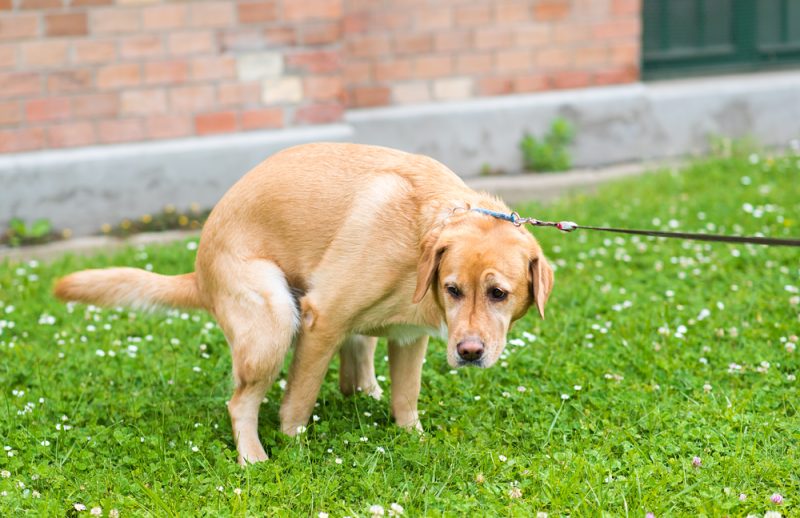In this article
Dogs are known as man’s best friend and for good reason. They are loyal, always around to lend an ear, and protective of their family and property. Some canines are also valuable to those outside of the family dynamic for one reason or another. That’s a problem, though, because thousands of dogs are stolen throughout the United States every year, and the number of pets stolen a year has increased by 40% since 2021 1.
Why do people steal dogs, anyway? There are multiple reasons for the phenomenon, including money and loneliness. Dognapping is a sad reality to accept, but knowing what drives people to steal canines and what can be done to minimize the risk of your pet being stolen can help you keep your furry family member safe now and in the coming months and years.

The 3 Common Reasons Why Dogs Get Stolen
1. Money
There are several ways—all of which are immoral and inhumane in one way or another—that people can make money by stealing dogs. Those who do this don’t care where the dogs come from; they just care about the money that they can make by kidnapping the canines in question.
- Pedigree/Breed: If a dog has an expensive pedigree, someone might steal and sell them for a fraction of the cost that a legitimate and safety-conscious breeder would sell them for. Any purebred can make a person some money, be they a Chihuahua, Rottweiler, or Golden Retriever.
- Fetishes: Sadly, there is a demand for “crush” videos that involve injuring animals. These videos are sold in obscure places online and on the illegal market for large amounts of money. Fortunately, there are laws against these types of videos and those who produce or consume them. Unfortunately, people who produce or consume these videos don’t generally care whether they are breaking the law.
- Dog Fighting: While illegal, dog fighting is an underground gambling practice that is performed in many parts of the world, including the United States. Aggressive large breeds are generally used for fighting. However, “bait dogs” are also popular in the sport; they are used to bait the fighting dogs so they can practice their skills, which usually leads to the bait dogs being killed.
- Breeding: Some people steal dogs that have not been spayed or neutered so they can use them for breeding purposes. If they can get dogs of a certain expensive breed, they’ll make even more money from the puppies.
2. Loneliness
Some people are desperate for companionship and will do anything to get it, including stealing a dog to call their own. People who steal a dog out of loneliness aren’t thinking about anything else besides their own needs and happiness. They usually take steps to care for the dog, but they don’t think about the dog’s best interests or the family that is missing their companion.
No matter the extent of the loneliness, it is no excuse for stealing someone else’s pet. Many dogs and other pets are available for a very low cost at shelters and other animal organizations. If these people cannot afford the cost of the pet, they probably won’t be able to afford even very routine healthcare for them.
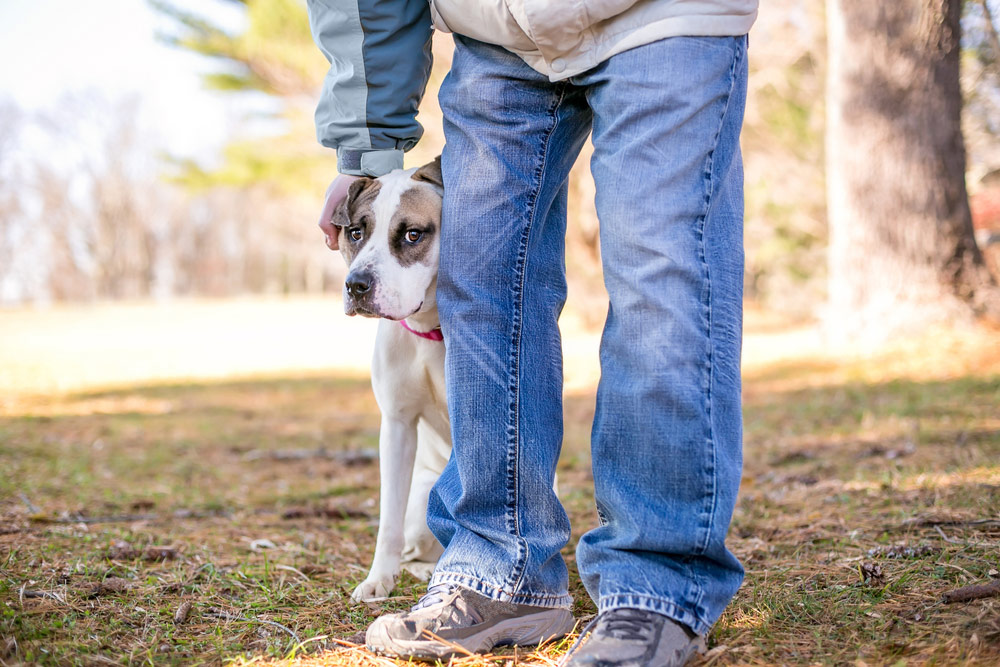
3. Lack of Compassion
Sadly, some people cause pain or harm without thinking about how their actions will ultimately affect others. If they do think about such things, they don’t exhibit compassion regarding the outcome. This type of person might steal a dog and send them off hundreds, if not thousands, of miles away, without considering or caring about the impact that their actions will have on the family or the dog.

What You Can Do to Minimize the Risk of Your Dog Being Stolen
There are several things that you can do to help ensure that your dog does not become a victim of theft.
1. Be Vigilant Regarding Supervision
Keep an eye on your dog anytime they are outside of your home, even if they’re in a fenced yard. Canines might not need as much supervision as toddlers in that they can care for themselves, but they know as little, if not less, than young children when it comes to dealing with strangers and resisting theft.
You must be vigilant and make sure you know exactly where your dog is at all times when they aren’t inside the home. Install video cameras to monitor what your dog is up to in the yard and who might be getting too close to them. Never let your dog go outside unsupervised. Don’t tie your dog up outside of shops.
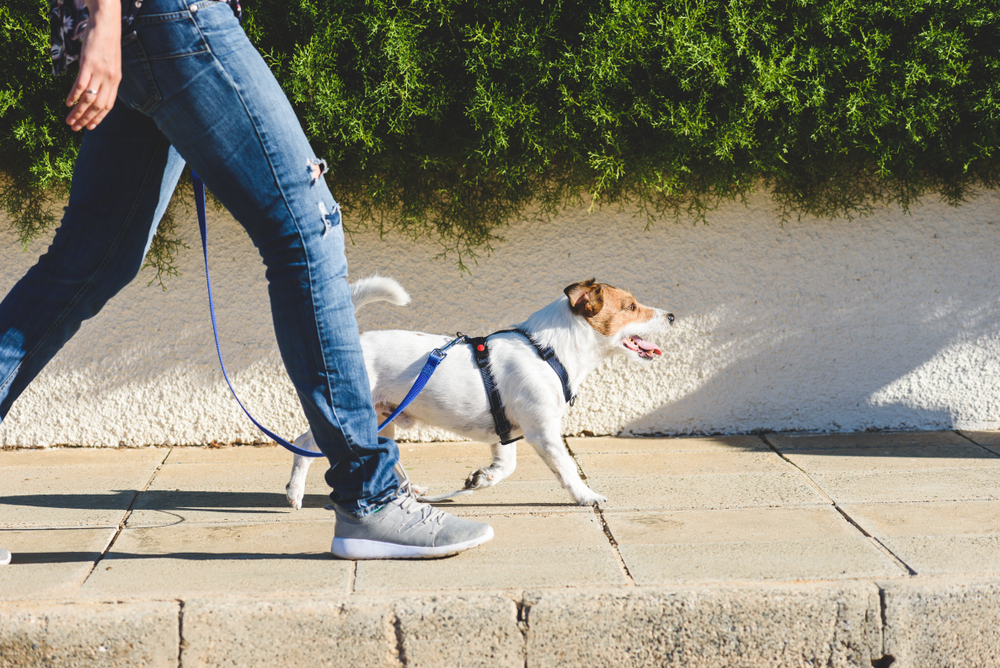
2. Get Your Dog Spayed/Neutered and Microchipped
A great way to reduce the risk of your dog being stolen is to get them spayed or neutered. If they can’t reproduce, they are of less value to unscrupulous people looking to hastily breed dogs. Fixed canines cannot provide an ongoing profit.
You should also get your dog microchipped so they can be traced back to you if they get lost or stolen. If a dog is brought to a rescue organization by a caring person or the humane society, they will be scanned for a microchip so their owner can be contacted and reunited with their pet.
3. Invest in a GPS Tracker
Using today’s technology, you can track where your dog is through GPS, which can help you recover them if they ever get stolen or lost. With a GPS locator system attached to your dog’s collar, for example, you can see exactly where they are at any time, which can help you locate them if someone takes them.
Just be aware that someone who steals a dog is likely to look for a tracking system and remove it, so you’ll have to move swiftly and document the movement that you track while it’s still in place.
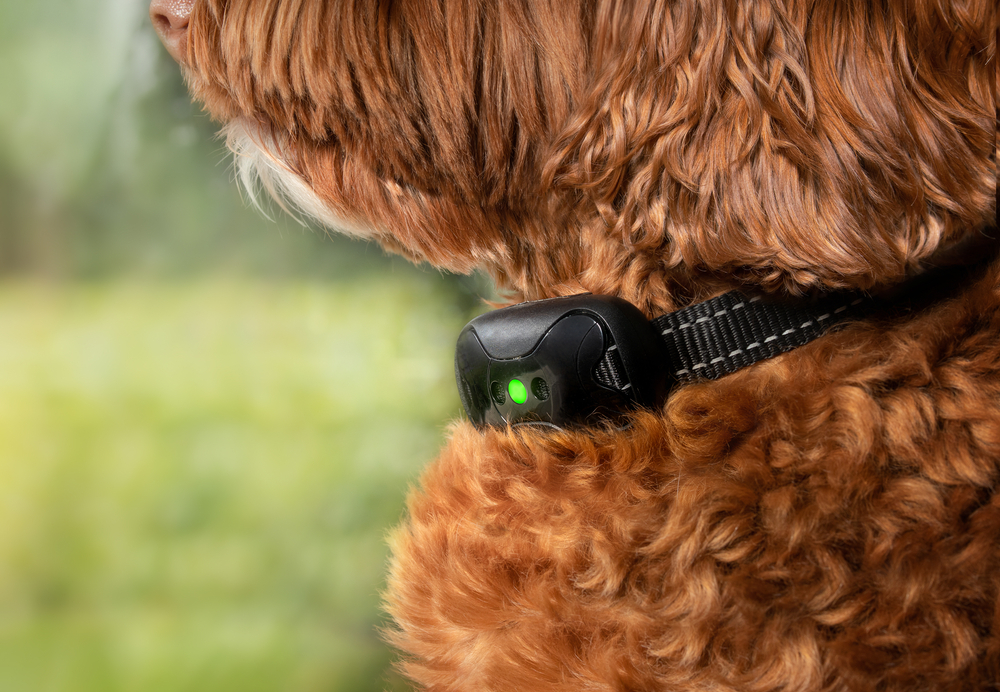
4. Don’t Get Too Comfortable With Routine
People who plan to steal a dog might try to track the owner’s routine so they can figure out the perfect time for the theft. For example, if you go for a walk with your dog every day at 8 a.m., return home, and then head to work, a thief will figure out this routine quickly and start creating a plan to make a move. So, consider taking your dog for walks during the morning hours on some days and during the evening hours on other days.
Be vigilant about monitoring for suspicious behavior in the area. Leave half an hour early to work occasionally to keep things interesting. Find ways to leave work sooner every once in a while to keep would-be thieves on their toes. Take your dog with you when you head out for adventures during your free time whenever possible. The less “routine” your lifestyle is, the less likely someone will target your dog for theft.
5. Don’t Show Off on Social Media
The more known you make your dog in the eyes of the public, the higher the risk that someone will target them for theft, especially if they are an in-demand breed or can reproduce. So, think twice before posting pictures of your dog online, especially on social media sites where anyone can see what you are posting. Consider only sharing photos of your dog with friends and family members whom you know intimately and wouldn’t think about conspiring to steal your dog.

What to Do If You Think That Your Dog Has Been Stolen

Unfortunately, you are not a superhuman and can’t magically look into a ball and see where your beloved furry family member has gone once you realize that they are missing. If you think that your pup has been stolen, there are a few things that you should do right away.
- Contact Local Organizations: Let the humane society and other organizations know about your missing pet so they can help you find them.
- Utilize Social Media: Post pictures of your dog and their credentials online so people can network and help you find them. Use multiple social networking outlets.
- Print and Post Fliers: Post as many fliers about your missing pet around town as possible and as soon as possible.
- Offer a Reward: Sometimes, a reward for a returned dog can be worth more than what the thief was offered.
- Connect With Nationwide Organizations: Get online, and contact as many rescue and pet-finding organizations as you can find.
- Don’t Give Up: Never give up on your search. It might take a while before you’re reunited, but there’s always a chance.

Final Thoughts
Dogs get stolen for various reasons, and there isn’t always something that we can do to stop a theft. However, there are plenty of things that we can do to reduce the risk of our dogs being stolen and to reunite with them if they do go missing. The most important thing is to never give up effort or hope.
- Related read: Do Dogs Prevent Break-Ins? Facts & FAQ
Featured Photo Credit: Daisy Daisy, Shutterstock
